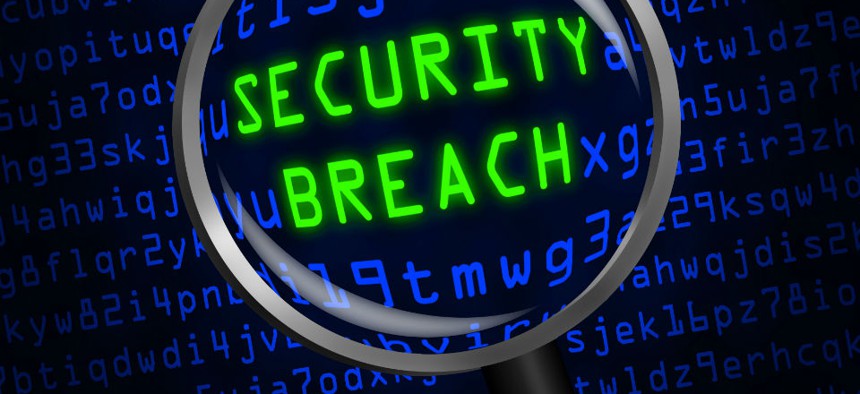GAO: Agencies Can’t Always Prove They Respond to Breaches

Balefire/Shutterstock.com
In one situation, bad actors infected an employee's laptop with malicious software to target other employees, but officials didn't document their response actions.
About 65 percent of the time, federal departments did not have sufficient evidence of the steps they took to respond to cyber incidents, according to federal auditors.
They often were able to show the extent of the breach, but not the severity of the impact to agency operations, Government Accountability Officials said.
One mistake highlighted in a report GAO released on Friday: An agency learned from the Homeland Security Department that system login credentials at two divisions may have been compromised. When agency personnel responded, they "mistyped the potentially compromised credentials for one component," didn’t respond when that component asked for clarification and failed to follow up with the other component when no one there responded to an alert, Gregory Wilshusen, director for GAO information security issues, said in the audit.
Despite these errors, personnel closed the incident without taking further action, he said.
"Agencies did not consistently demonstrate that they responded to cyber incidents in an effective manner," Wilshusen said. "Agencies frequently documented their incident response actions for containing and eradicating incidents, but did not consistently demonstrate how they had handled incident response activities for the analysis, recovery, and post-incident phases."
Also, in about 49 percent of the incidents, agencies did not prove that they took actions to prevent a similar compromise.
In one situation, bad actors infected an employee's laptop with malicious software to target other agency employees while the employee was travelling, the report recounts. Responders quarantined the machine but said "further actions could not be taken until the user had returned from travel," Wilshusen said. "Incident handlers did not document what, if any, action, they took when the employee returned."
The study drew its conclusions based on a sample of the 24 major agencies. Auditors indiscriminately chose a total of 240 incidents that occurred during fiscal
The six agencies evaluated did not run drills to test whether emergency response procedures would work during a real cyber event, auditors found.
White House and DHS officials perform "CyberStat" reviews to help bolster governmentwide cybersecurity, but their assessments do not touch on incident response, GAO officials said.
The reviews do not check whether agencies are "considering impact to aid in prioritizing incident response activities, recording key steps in responding to an incident, and documenting the costs for responding to an incident," Wilshusen said. DHS officials told GAO that their reviews discussed the closing of incidents and trends involving incident reporting.
The new study was performed partly because of the reported intensification of cyber threats.
Between fiscal years 2010 and 2013, agencies self-reported a more than 35 percent increase in incidents, reaching 46,160 cyber events most recently. Among the situations mentioned was someone breaking into an Energy personnel database in July and stealing banking information and password security questions from some of the 104,179 individuals affected. The saga of ex-contractor Edward Snowden's release of troves of national secrets also was cited in the report.
After reading a draft report, Energy, DHS, NASA and VA informed GAO of specific actions they have taken or will take to address recommendations for resolving problems. Transportation told auditors the department had no comments.
(Image via Balefire/Shutterstock.com)






